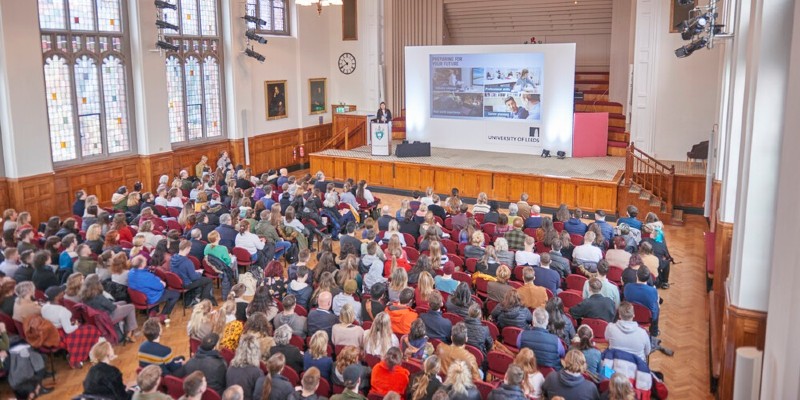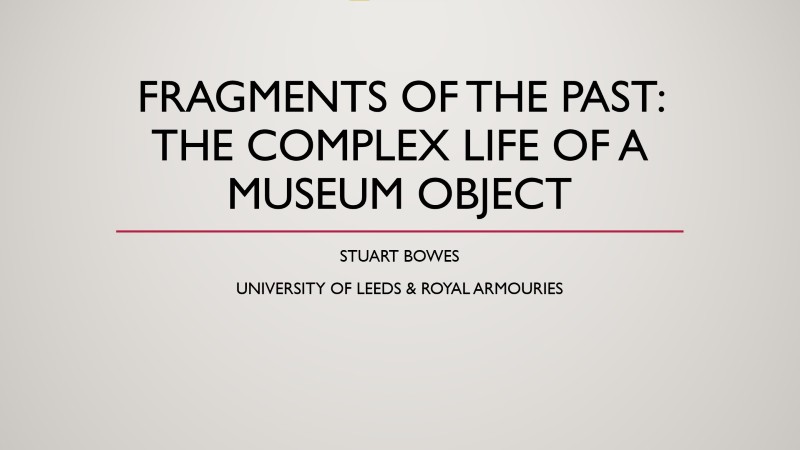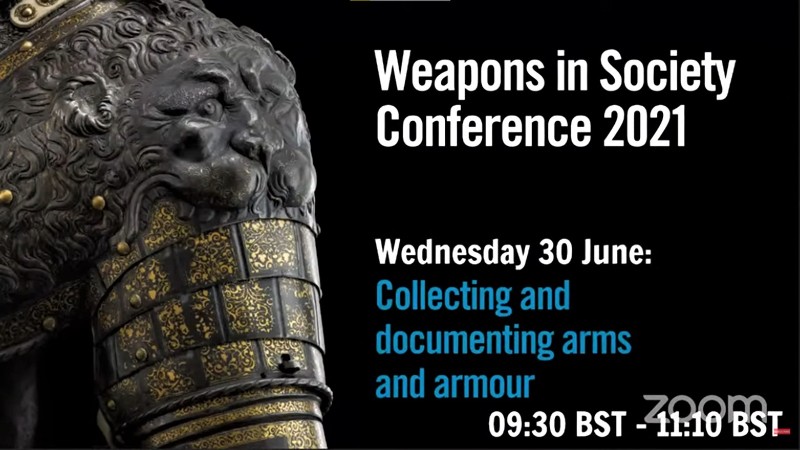Conferences and Covid: Embracing the Digital

Postgraduate Researcher Stuart Bowes recounts his experiences of presenting research at online academic conferences.
I have always associated the phrase ‘academic conference’ with large groups of scholars gathered in one place to discuss the pressing issues of the day. Papers delivered to tightly packed audiences such as the one pictured above, dashing between conversations to network during breaks, making trips to notable local sites: the very idea of a conference presupposes physical presence. But what happens when the physical conference is no longer a viable option?
Like almost everything else over the last year and half, academic conferences have had to move with the times. The onset of the coronavirus pandemic in March 2020 unsurprisingly led to the postponement or cancellation of countless events. Since then, researchers across the globe have necessarily adopted a new approach to continue the communication and discussion of their findings: the digital conference.
This ongoing period of transition has formed the backdrop for my own entry into academia as a PhD researcher. In June, I was fortunate enough to be able to deliver papers at two conferences, the first opportunity to present my research on the public stage.

The first of these was not really a proper conference, but rather a more informal ‘festival of research’ organised by my funding body WRoCAH (White Rose College of the Arts and Humanities) to celebrate the achievements of its doctoral cohort during this trying year.
There was no specific theme and the audience was formed of postgraduate researchers from across the arts and humanities, so my paper examined the various properties of museum objects and how these can affect their management in general terms. The relatively casual atmosphere of this event was most welcome, providing the ideal setting for my first public presentation and useful experience for future events.
As it turned out, this preparation was invaluable. Two weeks later, I was once again presenting but this time on a much more prominent platform: the Weapons in Society Conference.
Organised by my partner organisation, the Royal Armouries, this interdisciplinary conference brought together experts from across the globe to investigate the diverse relationships between weapons and the societies that have made, owned, and used them. Quite a daunting prospect for my first major conference appearance.

Screenshot from video of Weapons in Society conference - Day 2 - Panel 1 - Collecting and Documenting Arms and Armour. Image shows Lion armour (1550). Possibly of King Henri II of France. 16th century. Object Number II.89, Royal Armouries Collections.
I delivered a twenty-minute paper on the documentation of the weapons collections at the Tower Armouries during the early twentieth century for the panel on ‘Collecting and Documenting Arms and Armour’. This combined two of my main research interests – collections management and the history of museums – embracing many of the central themes of my doctoral project. It was rather exciting to be able to share the outcomes of this investigation with such an engaged audience.
I was most apprehensive about the Q&A session that followed, given the impossibility of predicting and therefore preparing for the questions you might be asked. Despite one small correction by a more knowledgeable delegate, I kept my composure and I feel that I performed well given the circumstances. I found the discussions generated by the panel to be particularly productive, as the questions of the attendees and other speakers alike gave me the opportunity to consider my research from new perspectives.
Overall, I would say my experiences of attending and presenting at these online conferences have been positive. There are certainly benefits to the digital format. For starters, it makes conferences much more accessible, especially when attendance is free of charge. My own panel at the Weapons in Society conference was watched from as far afield as California, Indonesia, and Australia, according to comments from the accompanying YouTube livestream. Such a global reach would normally only be reserved for the most prestigious of physical conferences.
Likewise, an online conference can mitigate the logistical difficulties of presenting if you possess a certain degree of digital literacy. All I had to do was boot up my computer, join the video call, and share my screen; no worrying about transport, accommodation, or any of the other myriad complications that accompany a physical event. I certainly appreciated being able to deliver my paper from the comfort of my own office, where I benefited from being in a familiar environment and having all my materials to hand.
The major drawback with digital conferences is that the technology cannot easily reproduce natural interactions. That is not to say that forging connections remotely is impossible. The organisers of the Weapons in Society conference organised a ‘speed-dating’ style networking session for its attendees, while independently I conducted a follow-up call with one of the delegates who wanted to discuss my research further. Nevertheless, such initiatives can require considerable effort and lack the spontaneity of organic exchanges.
I look forward to being able to attend academic conferences in person at some stage, so I can properly compare them with my experiences of their digital counterparts. This assumes that they still exist, of course, as the coronavirus pandemic may have killed off conferences as we know them. We may be entering a brave new world, where digital (or at least hybrid) conferences, with all their attendant benefits and drawbacks, become the norm.
Whatever the future holds, one thing bears repeating: always remember to unmute yourself before speaking!
More information
You can watch the ‘Collecting and Documenting Arms and Armour’ panel from the Weapons in Society Conference here on YouTube.
Find out more about Stuart Bowes’ research here.
Feature image
Postgraduate Open Day February 2020 in The Great Hall, University of Leeds. Photo by Ash Holdsworth. Image copyright University of Leeds.
